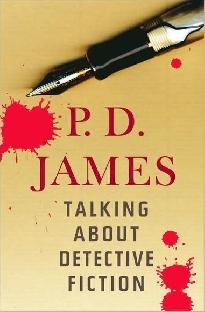I don’t know what happened to me this week…but I read Death Comes to Pemberley.
I don’t really read Austen sequels/take-offs/embellishments/reinterpretations, and by “don’t really read,” I mean “have never read, not even one.” But I was at Miss Osborne’s and raiding her bookshelves, and she told me about the copy of Death Comes to Pemberley she’d found on the book-trade shelf at a friend’s apartment building. I don’t know what came over me, but I took it home.
I read the whole thing, and…I still don’t get it. I like Jane Austen, of course, and I like a good mystery novel, and I see the theoretical pleasure of mixing the two; it’s just that, in practice, the two don’t really mix in any substantive way. They can’t, really, unless you make someone big and important—say, Elizabeth or Darcy—the killer, in which case you’re kind of veering into Pride and Prejudice and Zombies territory, messing with the genre just for the sake of it. And because—spoiler alert!—that’s not the case here, the mystery lives in the realm of supporting and original characters, and we essentially have a historical mystery existing alongside familiar background that doesn’t actually mean anything.
This isn’t to say the book was bad; it wasn’t. It was fine—solid mystery, a little funny, mostly well-written. It’s just…I don’t see the point.
A few specifics (nothing TOO spoilery, but if you don’t want to know anything, consider yourself warned):
– Oh, Denny. He always seemed like a good guy! I think he’s actually a great choice of victim—being somebody we know, but not somebody we care about in particular—though he would also have made a good up-and-coming character, had he lived.
– My favorite parts, by far, are the moments where James executive-decides that the Austen canon is, in fact, a single Austen Universe, and incorporates the other novels in small ways. Wickham gets a job with Sir Walter Elliott! Something spoilery happens to Harriet Smith! This kind of goofy continuity is insubstantial but makes my heart sing nonetheless.
– One moment that stood out to me was James’s assertion that Darcy and Mr. Bennet are friends—not just friendly, but some kind of genuine kindred spirits. I’m undecided. These guys love their books, and they love Lizzy Bennet, and maybe that’s enough…but maybe I just think Mr. Bennet doesn’t really have any friends.
– Well, I’m glad Georgiana ends up with cute Henry Alveston, because he is cute. Not that there’s anything wrong with Colonel Fitzwilliam! But: cute. Get it, girl.
– I have nothing to say about Elizabeth, which I think sums up my whole feeling about this book. How can there be nothing to say?
Have any of you read Death Comes to Pemberley, Austen Nation? What’d you think?

